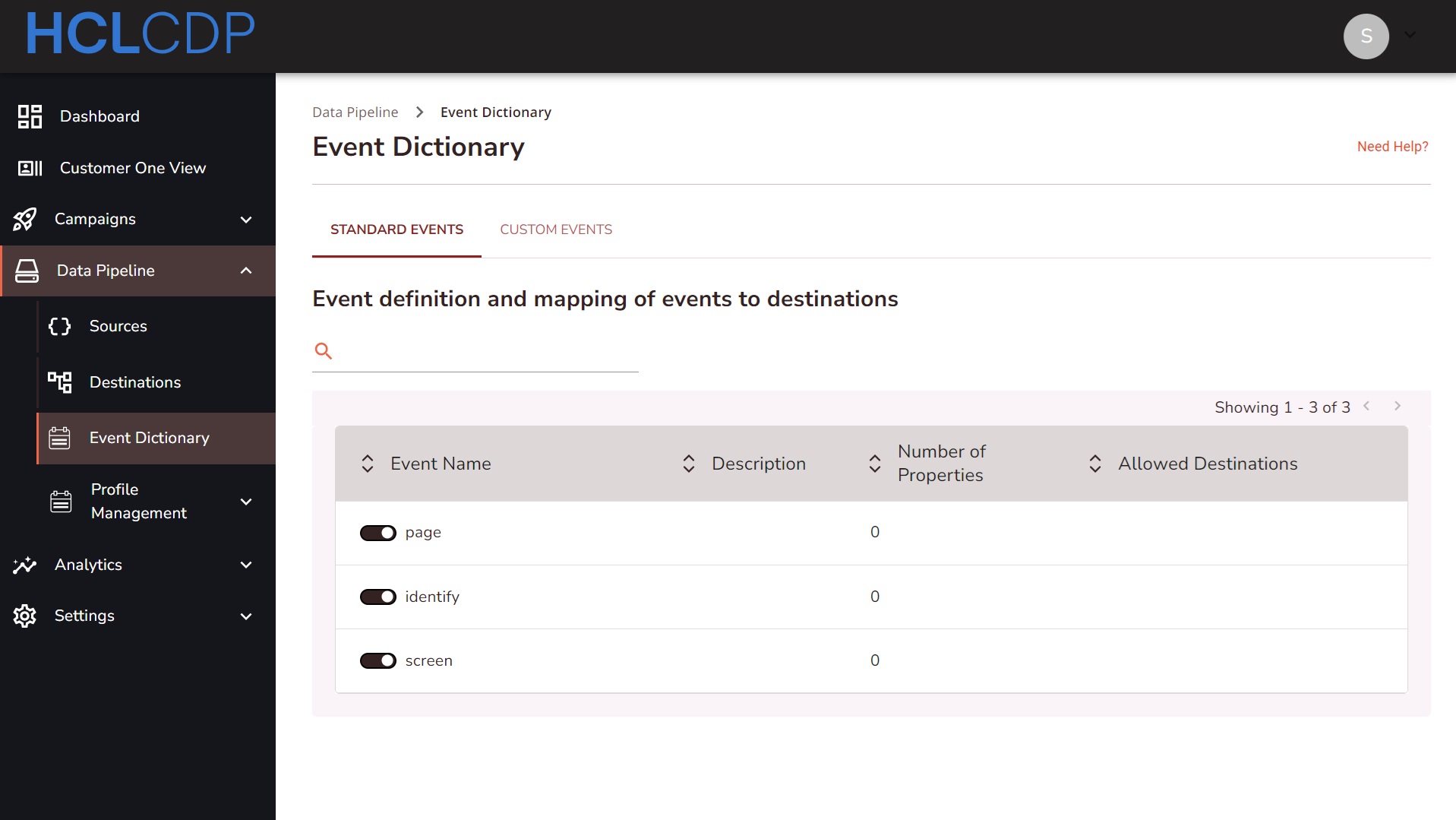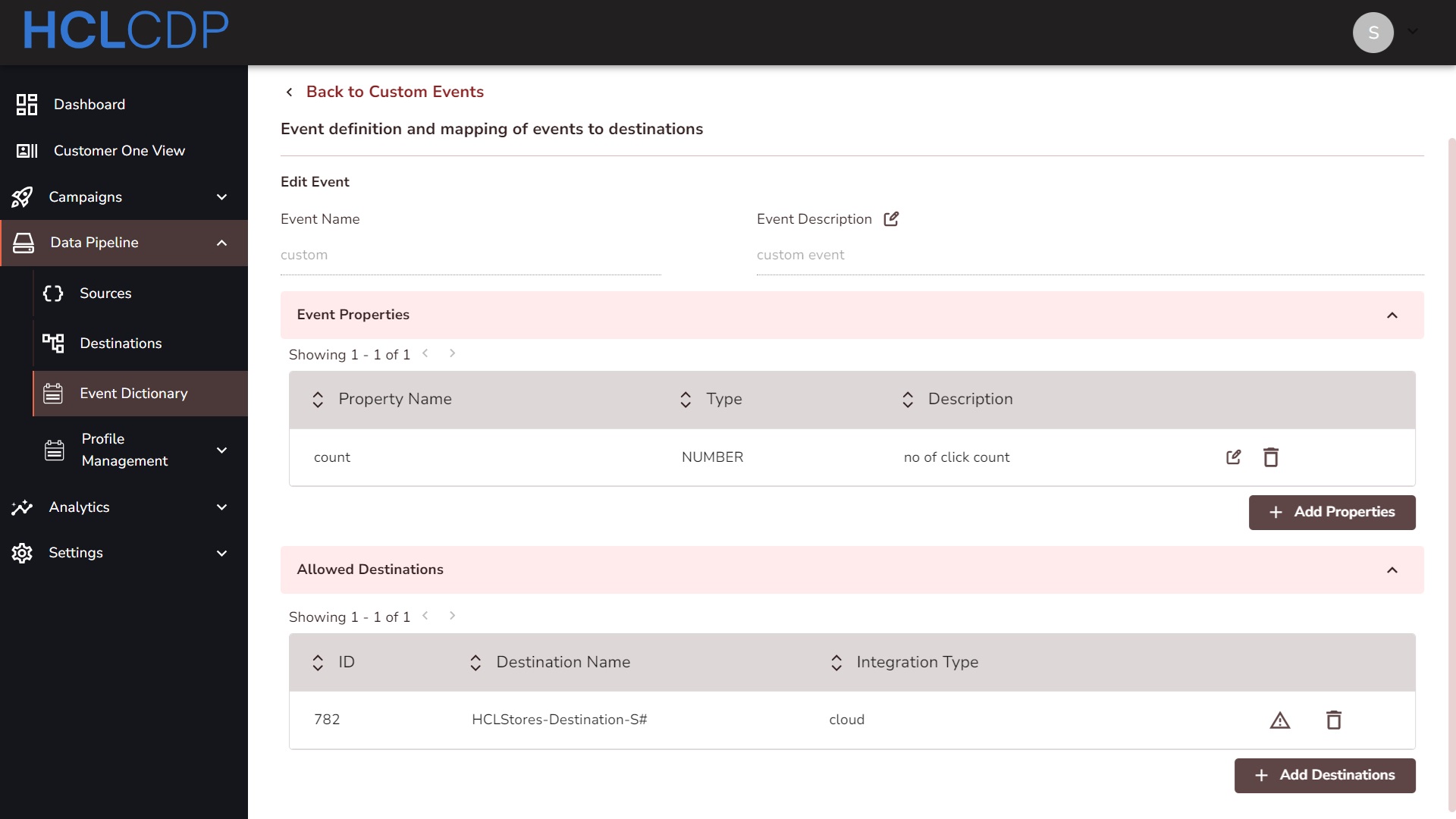Event Dictionary
The Event Dictionary standardizes and manages event schemas to ensure data consistency, integrity, and real-time control across all sources and destinations.
The Event Dictionary is a global event definition database designed to standardize event schemas within your account. It ensures consistency and accuracy of event data across all sources, providing flexibility and control for marketers.
Benefits of Event Dictionary
- Define Event Schema: Specify event names, properties, and their data types to maintain a structured schema.
- Ensure Consistency: Standardize events across all data sources for reliable and uniform reporting.
- Validate Data: Prevent incorrect data from entering the system, maintaining data integrity.
- Real-Time Management: Add, delete, or modify event properties in real-time, enabling quick adjustments.
- Filter Events for Destinations: Control which events are sent to specific destinations.
Types of Events in the Event Dictionary
Standard Events
Standard events are pre-configured by HCL CDP, and include the following methods page, screen and identify.

Custom Events
Custom events allow you to define and track specific user actions. These events can capture customer behavior such as product clicks, purchases, or user information.
Creating a Custom Event
To create a custom event in the Event Dictionary, follow the steps below:
- Click "Create New Custom Event". Add a name for your event and a
description for the event.

- Click Save to create the event.
- To add properties, specify the property name for the custom event, and define the property data type (e.g., STRING, NUMBER).
- Add a description for the property, and click Save.
- To manage Event Properties, edit property names, types, or descriptions as needed.
- Delete unused properties to keep the schema clean.
